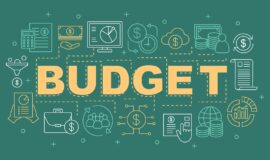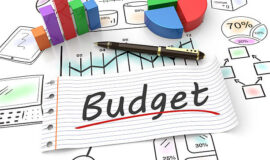
The government presented the federal budget 2022-23 less than a fortnight ago and immediately it had its naysayers. Surprisingly, the budget was disliked or disapproved not by Pakistanis but those we seek financial assistance from, Americans and more specifically, the International Monetary Fund (IMF).
To put things in perspective, a lot of what was written in the federal budget was done to win IMFs approval, so the stalled loan program could be re-started. After the budget, the IMF showed its reservations and the government had to “tweak” its budget. Now that it has, let’s see what the “new budget” would mean to us.
Update:
Super tax
In a recent development, the federal government has imposed a 10% “Super Tax” on large-scale industries. Here is a list of industries affected by the new tax.
- Sugar
- Cement
- Steel
- Textile
- Tobacco
- Fertilizer
- Bank
- Oil and gas
- Beverages
- Automobile
- Chemical
- Airlines
- LNG terminals
As per the government, the companies earning more than Rs.300M in these industries will pay this super tax. It is a one-time levy and will only be applicable for the fiscal year 2022-23. It is important to clarify that all the sectors will have to pay a 4% super tax. It is an additional 6% tax on the above-mentioned industries accumulating to a total of 10%.
What is a Super Tax?
It is an additional tax on anything that is already taxed. It means, the companies will have to pay other taxes as well as this additional tax.
Government’s Perspective
The government aims to narrow the budget deficit by collecting more taxes. Tough decisions are needed to save the economy. So, the government aims to target the high-income earners for additional taxes so that revenue can be spent on education, health, infrastructure, skill education, and IT uplift.
Analysis
We know the government’s perspective of saving the poor by putting a burden on the rich. However, it might only work for a while as the long-term effects of this taxation might be disastrous for the economy and poor people as well. Some might argue that imposing these additional taxes will increase unemployment and inflation.
It is not the end as imposing new taxes means the cost per unit for the companies in this sector will increase. It will automatically increase the prices of products and services offered by the companies in this sector.
If we talk about export-oriented companies, an increase in their cost per unit might result in losing competitive edges in the international markets. In the end, some companies might have to end their operations due to fewer sales in the international markets to avoid losses. When the companies shut down or go to downsize, poor people will suffer due to unemployment.
We have seen the imposition of super tax on the cement and steel industries. It will increase construction costs which are already on the higher side. Due to increased construction costs, there might be a decrease in construction work from now on. It might result in an increased unemployment rate for labor in the country. Poor people are affected again!
It is another perspective that the government needs to impose taxes to help meet IMF bailout targets. The above-mentioned analysis shows that this “IMF Approved Budget” might not be in the favor of poor people in the longer run.
Petroleum Prices

Long before the present federal government presented its budget, it was expected that it would withdraw petroleum related subsidies in it. This was a demand of the IMF. The government did withdraw the subsidies, resulting in skyrocketing petroleum prices. But the IMF was still not happy as it wanted the government to impose petroleum levy, which is zero at the moment. The government had not done so in the original budget, but now it has agreed to the IMFs demands.
Petroleum Levy
Under the “new budget”, the government will impose a levy of Rs.5/litre every month till it reaches Rs.50 per litre. Assuming that the government keeps increasing this levy every month, simple arithmetic would tell you that it would take the government 10 months to reach Rs.50 per litre levy.
No matter if the petroleum prices keep increasing or remain unchanged in the international market, fuel prices in Pakistan could be at their highest in the month of April 2023. In any case, petrol prices will keep going up in Pakistan every month and even a minor decrease in international prices would not bring relief to the common man.
“New Budget”: Revised Tax Targets

The government has now agreed to extract Rs.422 Billion more in the form of taxes from the public. This was absent in the original budget draft.
Poverty Tax

One way of generating this money is by imposing the “Poverty Tax.” Once again, this was not in the original budget (in the original budget companies earning Rs.300 M and above were to pay 2%). But now the government has agreed to impose this tax on:
- Companies earning Rs.150 million to pay 1%
- Companies earning Rs.200 million to pay 2%
- Companies earning Rs.250 million to pay 3%
- Companies earning Rs.300 million and above to pay 10% (4%+6%)
This could result in corporate shortfall in profits resulting in job losses, etc.
Salaried Class to be Taxed
In the original budget, the government had exempted those drawing an annual salary of up to Rs.1.2 million from paying income tax. This exemption, too, has been withdrawn. Now, anyone earning Rs.600,000 to Rs.1.2 million per year will pay 2.5% income tax.
Miscellaneous Proposals
In the original budget, the government had set aside Rs.200 Billion for additional salaries and pensions. This has now been withdrawn in the new, IMF approved budget.
Summary

The government has now decided to collect even more from the people than what was proposed in the original budget. This will be done by either imposing new taxes or increasing the rates of existing taxes or the combination of both. The income tax exemption on those making Rs.600,000 to Rs.1.2 million a year is also gone.
A leading English daily ran a headline “‘Lifeline’ IMF deal secured”. It is not clear however, who the IMF has thrown this “lifeline” to – the government or an ordinary Pakistani.
Let us know your thoughts on this in the comments section.







I don’t think throwing IMF under the bus would be good. It’s a financial institution that only cares about how the country is going to payback. They won’t approve the loan when you are under the debts and still giving away subsidies. Now it’s on to Govt to give them a better program or just accept their program.